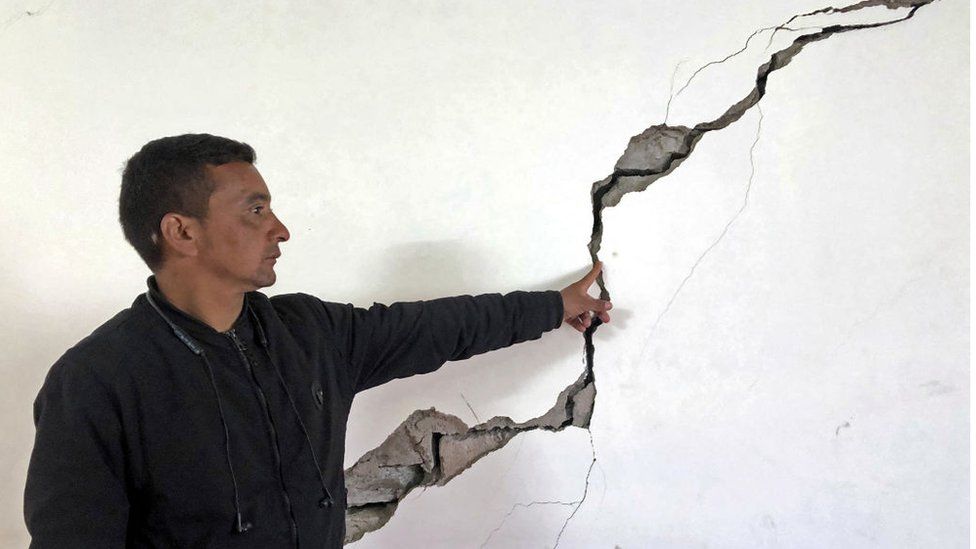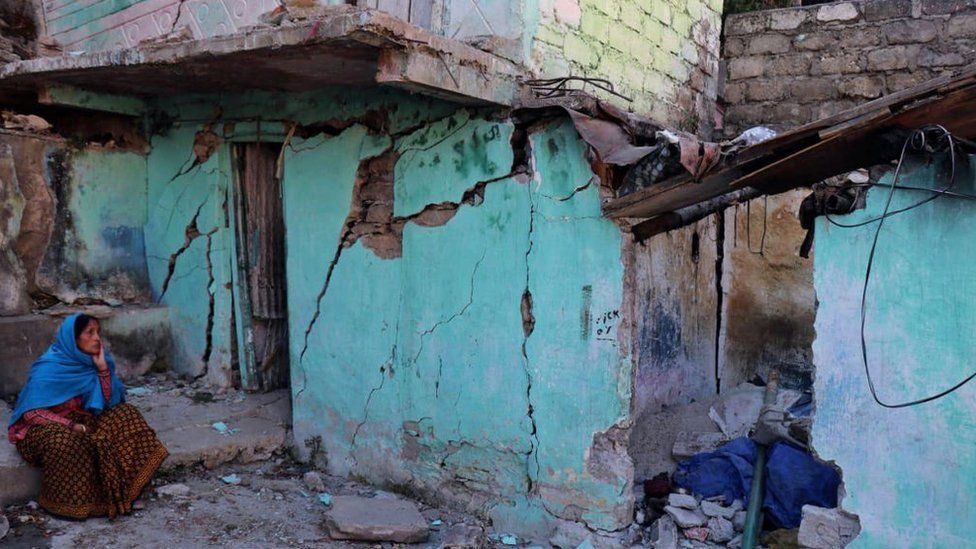Dozens of families were evacuated from Joshimath in India’s Uttarakhand state after large cracks appeared in their homes and on the roads.
The area has been designated as “disaster-prone,” according to a district official.
So far, over 600 houses have developed cracks as a result of gradual land subsidence, which refers to the ground gradually sinking.
Officials stated that dry ration supplies and financial assistance were being provided to affected families.
According to Himanshu Khurana, the magistrate of Chamoli district, where Joshimath is located, two federal government teams are on their way to the town to assess the situation.
Around 68 families have been moved so far to temporary shelters that have been set up in hotels and guest houses in safer areas. More people will be evacuated today and in the coming days, officials said.
Residents of Joshimath, which is situated in the ecologically fragile Himalayan region, had been raising the alarm for months, but the issue only got widespread media attention recently after the cracks began widening.
Last week, local officials stopped several construction projects after thousands of protesters blocked a national highway. The protesters blamed rampant construction for the crisis.
A team of experts visited Joshimath last week and submitted a report to the government. The report has not been made public yet, but The Times of India newspaper, which accessed a copy, reported that the panel had recommended that the houses that had sustained the “maximum damage” be demolished.
It also quoted an unnamed senior official saying that that at least 25% of the area of Joshimath seemed to be affected by land subsidence. The BBC has not independently confirmed this.

The problem of subsidence goes back decades; in 1976, a government committee flagged the risks of land sinking in Joshimath after residents complained of cracks in their houses. In its report, the panel also warned against allowing heavy construction work in the area.
But in the decades since, construction activity has only shot up in Uttarakhand, which is situated in the ecologically fragile Himalayan region. The state is home to a number of revered Hindu shrines that draw millions of pilgrims every year.
Experts have said that the rampant construction is damaging the ecological balance of the region, which is vulnerable to earthquakes and landslides.
On Sunday, the Prime Minister’s Office said that federal agencies were working with the Uttarakhand government to deal with the situation and ensure the safety of residents.
A Hindu religious leader has also approached the Supreme Court, asking it to urgently intervene and declare the crisis in Joshimath a “national disaster.” The matter was mentioned in court on Monday, legal website LiveLaw reported, adding that the Chief Justice had asked for it to be brought up on Tuesday.
In October, the BBC’s Vineet Khare had visited Joshimath and spoke to several residents who were living in fear.
“We leave the house the moment it starts raining because we’re scared,” Sumedha Bhatt, who lives in Ravigram village, told him.
On that visit, the BBC found that many people had already begun leaving their houses as the cracks had started widening after heavy rains. Some families had also resorted to makeshift measures, such as using polyethylene sheets to prevent seepage and wooden planks to offer additional support to their houses.

